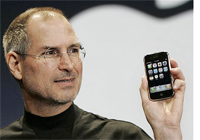![]() DSL Reports says Comcast sources are saying the cable provider is set to begin offering subscribers a method to track their bandwidth usage through the company’s online account management tool. The company had previously implemented a 250GB cap in October after mulling a limit for almost a half a year.
DSL Reports says Comcast sources are saying the cable provider is set to begin offering subscribers a method to track their bandwidth usage through the company’s online account management tool. The company had previously implemented a 250GB cap in October after mulling a limit for almost a half a year.
Data would not be delayed three hours, although it would have the ability to store up to three months of usage history and provide data on multiple MAC addresses (cable modems).
Comcast is not commenting on DSL Reports’ claims, only saying that it is “currently evaluating this service” according to BetaNews.
The cable provider has recently gotten much more heavy handed with its bandwidth management. It now is terminating chronically heavy users, sending them a letter informing them of their usage and blocking their accounts.
However, up until October there wasn’t an official limit, and these letters did not indicate how much bandwidth the guilty party was using.
Head on over to DSL Reports (link above) for as screenshot of this new functionality in action, set to debut in January .

 Harry reported on Monday about the
Harry reported on Monday about the 


